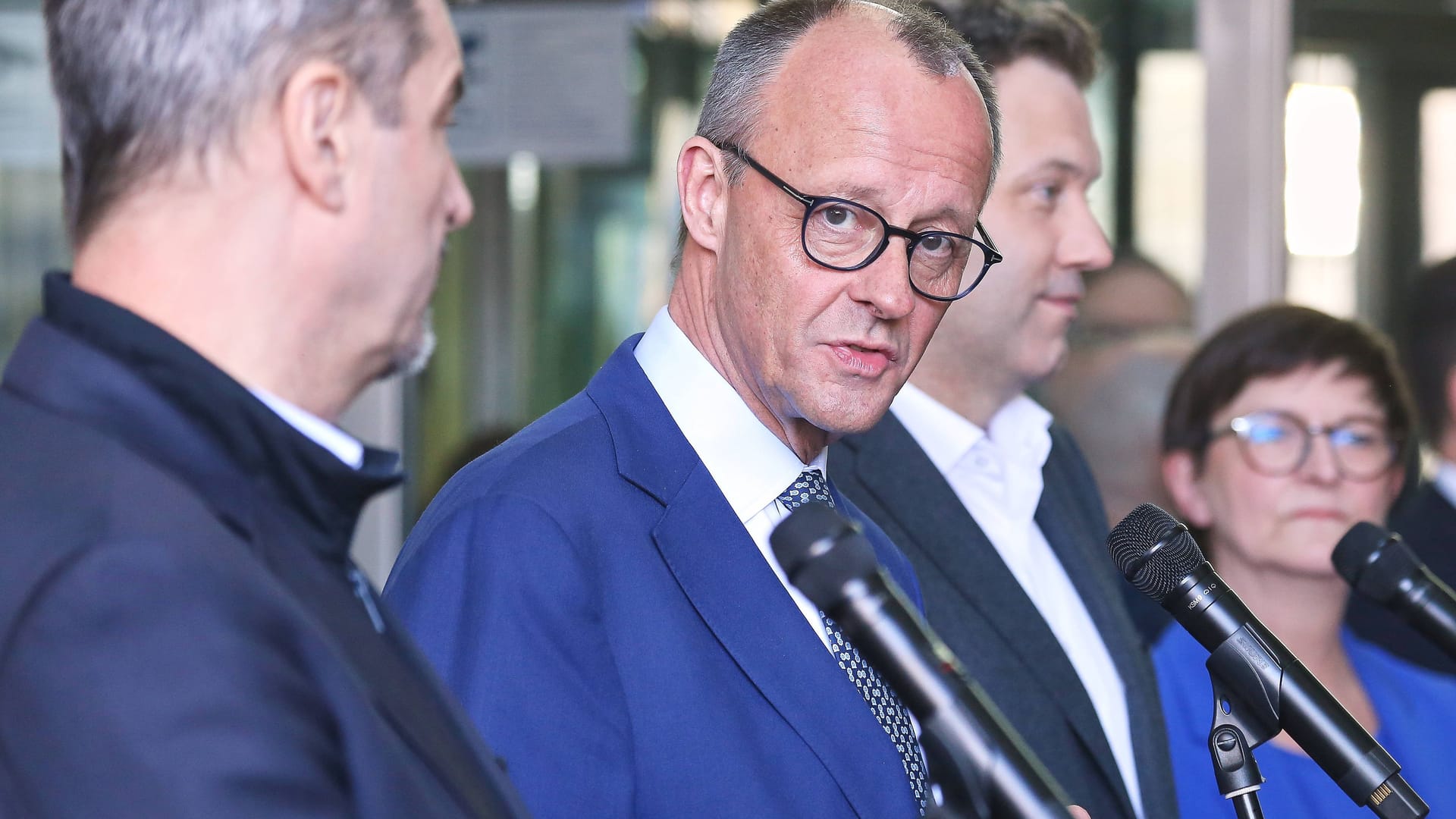After 13 hours of advice
Coalition negotiations: Evaluation should be made by noon
04.04.2025 – 06:55 a.m.Reading time: 3 min.


For 13 hours, the Union and the SPD were advised on Tuesday that a final agreement failed to do so. This should now take place until noon.
Almost four weeks after the start of the coalition negotiations, the Union and SPD are apparently about to finish. After around 13 hours of advice, the top politicians ended their talks without the final on Tuesday shortly before midnight. From negotiating circles, however, it was said that the goal was an agreement until Wednesday afternoon. Some were certain that there was a result during the day, an agreement was imminent.
The talks are to be continued at 9.30 a.m. at the CDU party center. Union circles also said, CDU boss Friedrich Merz wanted to inform the party’s closest management circle, the presidium, in the morning about the status of the negotiations.
Throughout Tuesday, the Union and SPD had struggled to compromise for agreement – in changing talks and repeatedly interrupted by individual consultations within the parties. Last but not least, President Donald Trump’s international situation and the customs policy of the US government put the negotiators under additional pressure to collect. Experts see new recession dangers and problems for the export-oriented German economy because of the US tariffs. Merz wants to keep against falling corporate taxes, less bureaucracy and lower energy prices.
Already five days after the Bundestag election, the Union, as the election winner, had recorded exploratory talks with the SPD about the formation of a coalition. In fact, there is no alternative to the black-red coalition because black and green would not have a majority and a collaboration with the AfD is clearly excluded from the Union.
Just a few days after the start of the conversation, on March 4, CDU, CSU and SPD agreed on a financial package of historical extent for defense and infrastructure. Together with the Greens, the old Bundestag with the necessary two-thirds majority still passed changes in the Basic Law in order to loosen the debt brake for defense expenditure there and to create a special fund for infrastructure and climate protection in terms of 500 billion euros.
On March 8, the explorations ended with an eleven -page paper and the recommendation to record coalition negotiations. These started formally on March 13th. 16 working groups were used, which should work out details on various topics within a week and a half. In the end, the working group papers contained a number of agreements, but also differences in numerous points, which should then clear the 19 -person main negotiating round. Merz also criticized that in some working groups the heading had probably “wished you”.
While the working group papers came to the public, almost nothing gave out the rounds of the chief negotiators. Politicians from the 19-round round always gave interviews, but in terms of content, hardly any prize. Negotiations were met in the SPD and CDU headquarters and in the Bavarian State Representation in Berlin. Financial issues, such as the tax system, and migration policy were considered the greatest chunks in the negotiations.
In the CDU, annoyance was repeatedly loud during the coalition negotiations. In response to the course of the course of the party leader Merz, a third of the CDU city association in Kühlungsborn (district of Rostock) left the party at the debt brake. The Junge Union threatened a no to a coalition agreement in which Merz’s change in the election campaign is not anchored. And there is also resentment in the Brandenburg CDU – due to insufficient integration of the party base. The district association Potsdam-Mittelmark called for a member survey as with the SPD.










